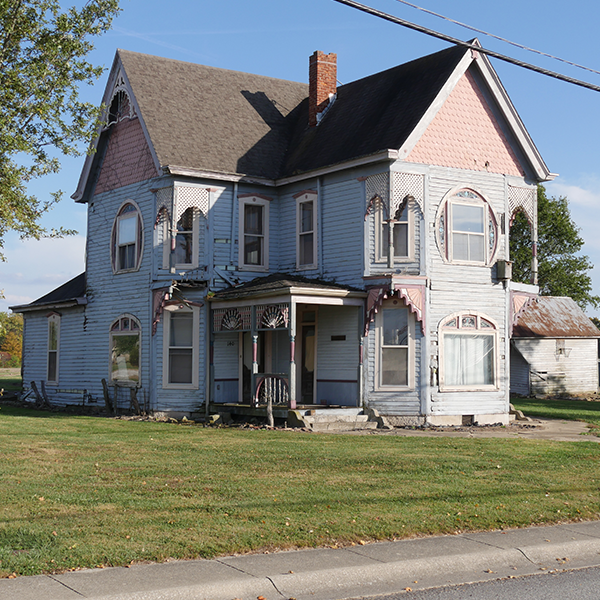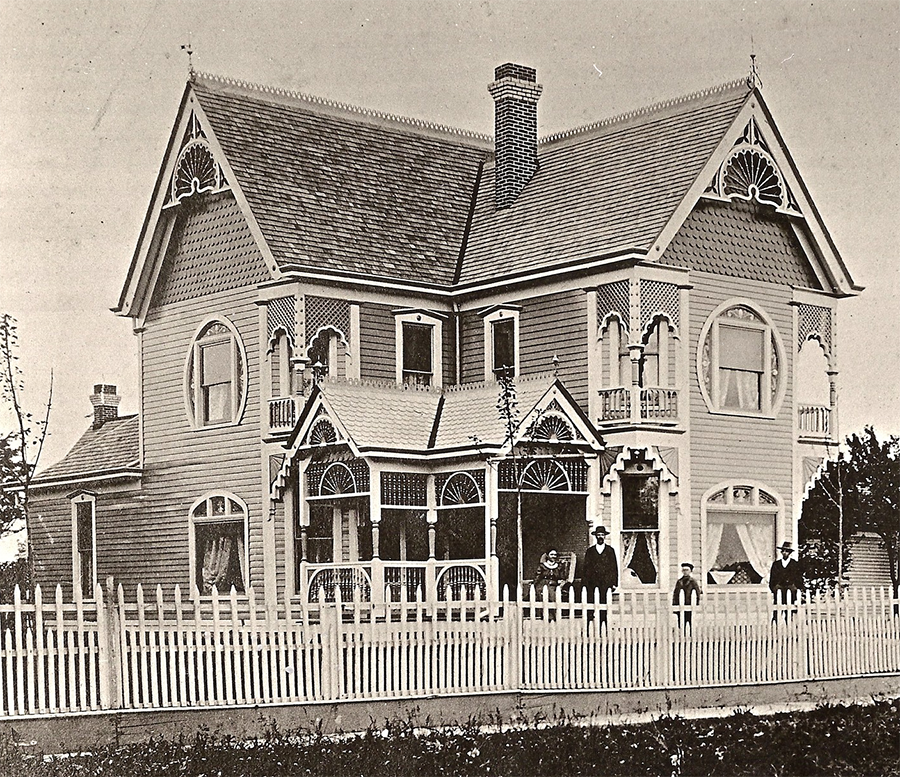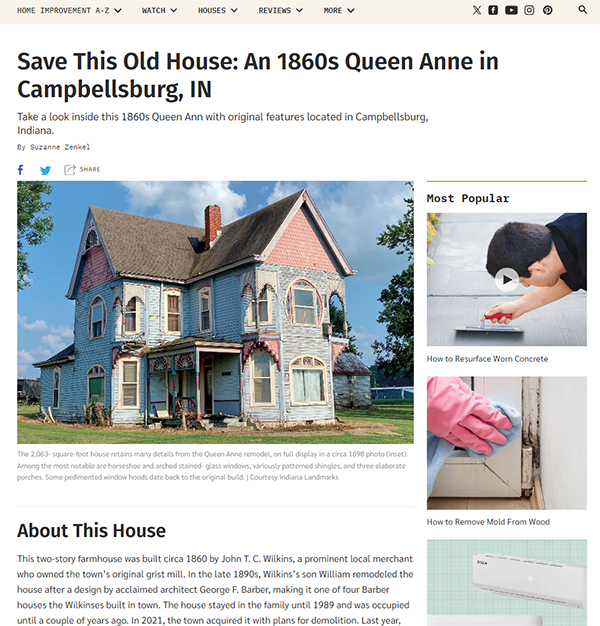Indiana Landmarks Acquires Rare Barber-Designed Historic Home
Nonprofit is stabilizing the house before looking for a preservation-minded buyer
Indiana Landmarks has acquired a nineteenth-century home with ties to storied architect George F. Barber from the Town of Campbellsburg, where the home is located.
The nonprofit organization will rehabilitate the exterior including a new roof, siding and carpentry repairs, structural repairs, gutter work, painting and more. Interior work will include kitchen and bath upgrades and repair to trim and finishes. The organization will also relocate a smoke house on the property.
 The home, half-acre lot, and four historic outbuildings had been on the market for two years, but when no buyer surfaced, Indiana Landmarks bought the home for $30,000 and plans to invest $195,000 in rehabbing the architecturally significant property. The Washington County Community Foundation is supporting the project with a $5,000 grant to Indiana Landmarks.
The home, half-acre lot, and four historic outbuildings had been on the market for two years, but when no buyer surfaced, Indiana Landmarks bought the home for $30,000 and plans to invest $195,000 in rehabbing the architecturally significant property. The Washington County Community Foundation is supporting the project with a $5,000 grant to Indiana Landmarks.
Once repairs are complete, Indiana Landmarks expects to offer the home for sale next summer, seeking a buyer who will finish the restoration and return the home to its former glory.
Built in 1858 by John T. C. Wilkins, who established the grist mill around which Campbellsburg grew, the home was renovated and expanded in the 1890s using details published by George F. Barber, a Tennessee architect who sold his designs through mail-order catalogs.
Known for his ornate Queen Anne style, Barber designed homes with turrets, gingerbread trim, balconies, porches, projecting windows and arches. With their exuberant “more is more” architectural aesthetic, Barber-designed homes have captured an enthusiastic following, including at least one Facebook group.
The designs apparently were quite popular with the Wilkins family, who built three other Barber homes in Campbellsburg, which is located approximately an hour’s drive north of Louisville, Ky. Today the group of four surviving houses constitutes a rare concentration of Barber homes connected to a single family in a small town, attracting the interest of Barber aficionados around the country. While three of the houses have been maintained, the Wilkins House has been neglected for decades, leaving it in a state of serious disrepair.
“Sometimes, Landmarks needs to step in and do some of the heavy lifting on a rehabilitation project,” said Greg Sekula, director of Indiana Landmarks’ Southern Regional Office. “Starting the rehabilitation can help buyers see the potential of places that might otherwise look too overwhelming. I’m confident we’ll get this property back on track and into the hands of someone who will be a great steward of it in the future.”




